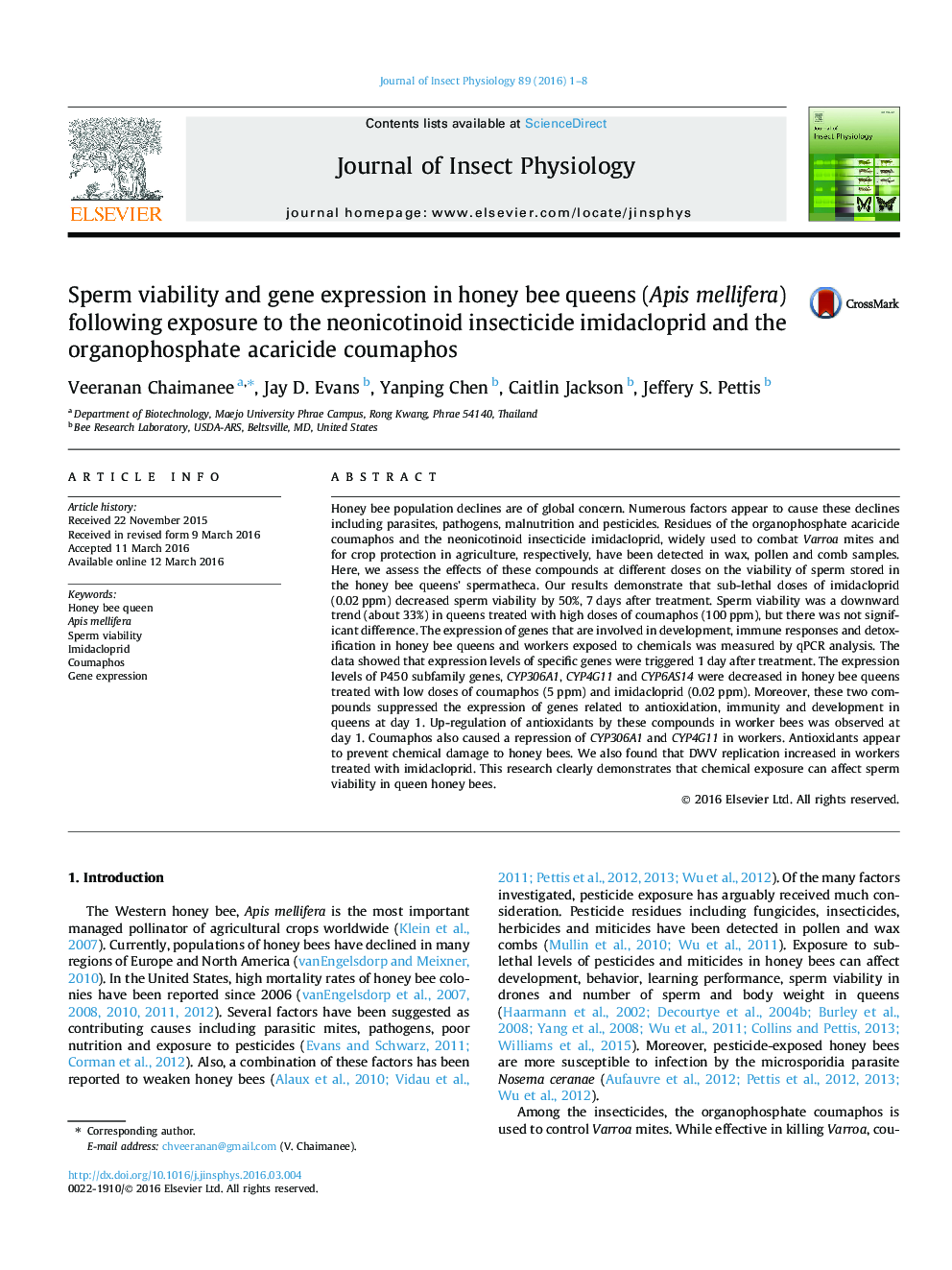| کد مقاله | کد نشریه | سال انتشار | مقاله انگلیسی | نسخه تمام متن |
|---|---|---|---|---|
| 2840291 | 1570981 | 2016 | 8 صفحه PDF | دانلود رایگان |

• All doses of imidacloprid decreased sperm viability in queens by 50%, after 7 days.
• Sperm viability was reduced ca. 33% in queens treated with coumaphos (100 ppm).
• P450 subfamily genes decreased in pesticide-treated queens.
• Both compounds suppressed the expression of antioxidant genes.
• Immunity and development gene activity was decreased by both compounds.
Honey bee population declines are of global concern. Numerous factors appear to cause these declines including parasites, pathogens, malnutrition and pesticides. Residues of the organophosphate acaricide coumaphos and the neonicotinoid insecticide imidacloprid, widely used to combat Varroa mites and for crop protection in agriculture, respectively, have been detected in wax, pollen and comb samples. Here, we assess the effects of these compounds at different doses on the viability of sperm stored in the honey bee queens’ spermatheca. Our results demonstrate that sub-lethal doses of imidacloprid (0.02 ppm) decreased sperm viability by 50%, 7 days after treatment. Sperm viability was a downward trend (about 33%) in queens treated with high doses of coumaphos (100 ppm), but there was not significant difference. The expression of genes that are involved in development, immune responses and detoxification in honey bee queens and workers exposed to chemicals was measured by qPCR analysis. The data showed that expression levels of specific genes were triggered 1 day after treatment. The expression levels of P450 subfamily genes, CYP306A1, CYP4G11 and CYP6AS14 were decreased in honey bee queens treated with low doses of coumaphos (5 ppm) and imidacloprid (0.02 ppm). Moreover, these two compounds suppressed the expression of genes related to antioxidation, immunity and development in queens at day 1. Up-regulation of antioxidants by these compounds in worker bees was observed at day 1. Coumaphos also caused a repression of CYP306A1 and CYP4G11 in workers. Antioxidants appear to prevent chemical damage to honey bees. We also found that DWV replication increased in workers treated with imidacloprid. This research clearly demonstrates that chemical exposure can affect sperm viability in queen honey bees.
Figure optionsDownload as PowerPoint slide
Journal: Journal of Insect Physiology - Volume 89, June 2016, Pages 1–8